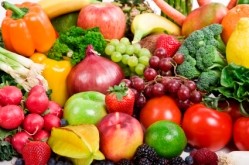Review backs nutrition for cutting stroke risk

The review – published in Nutrition Reviews – reveals that higher intakes of fruit and vegetables have been found to exert a protective effect against stroke, with consumption of three to five servings per day associated with reduced stroke risk compared to the consumption of less than three servings of fruit and vegetables per day.
However, the reviewers noted that there is not enough research to support the supposed benefits of other food groups and dietary regimens – including soy products, whole grains, animal and dairy proteins, and dietary programs or patterns such as vegetarian or vegan diets.
“The findings of this review indicate that stronger evidence exists supporting the benefits of certain dietary factors than others,” say the scientists, led by Ayesha Sherzai, from Loma Linda University, USA.
“Soy products appear to be protective against ischemic stroke in Japanese populations, but the numbers of such studies are too small to allow conclusions to be drawn regarding the different soy products and/or to extrapolate the results to other populations,” they argue. “Evidence for other nutritional parameters and their relationship with stroke risk is not clear.”
They said an example of this is the relationship between fish intake and stroke risk: “There is a lack of consistent positive correlation between fish consumption and hemorrhagic stroke, primarily due to insufficient cases, and therefore, low statistical power,” said the researchers, noting that consumption of fatty fish – like tuna and other broiled fish – is generally associated with a decreased risk of ischemic stroke, however fried and salted fish are known to be linked with increased risks of ischemic and hemorrhagic stroke respectively.
Study details
Sherzai and her colleagues note that it is estimated that 80% of all strokes are preventable by addressing lifestyle factors including nutrition.
As a result, the indicated that a full review of the impact of nutrition at the food group and dietary pattern level could provide insight into the role of nutrition in stroke – offering up information on where there is solid evidence for links and where future research should be targeted.
“While fruits, vegetables, and soy demonstrated a protective effect, variable findings were observed for fish, animal products, and whole grains,” they summarise.
“Adherence to DASH, Mediterranean, and prudent dietary patterns reduced the risk of stroke, whereas the Western dietary pattern was associated with increased stroke risk,” they reveal, noting that low-fat diets were not found to have any protective effect.
“Due to the synergistic interaction of nutrients that make it difficult to pinpoint specific nutrients as risk factors for stroke, future research, particularly clinical trials, should also focus on developing stroke prevention recommendations based on food groups and dietary patterns that are palatable and understandable to the general public.”
Source: Nutrition Reviews
Volume 70, Issue 8, pages 423–435, doi: 10.1111/j.1753-4887.2012.00490.x
“Stroke, food groups, and dietary patterns: a systematic review”
Authors: Ayesha Sherzai, Lauren T Heim, Cassaundra Boothby, A Dean Sherzai














